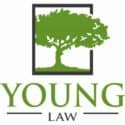Commercial Leases
Many times, due to the excitement of beginning a new business or relocating an already established one, it is easy to overlook what could go wrong. Remember, that in the majority of cases, a commercial lease will favor the landlord. Among other things, you need to know who will maintain the property, you or the landlord.
Always Hire a Commercial Real Estate Broker
Hiring a broker helps because he will show you practical vacancies. Finding the right broker can be tricky. Take the time to interview several brokers. You should ask the following questions:
- How many deals similar to yours have they done?
- Do they fully understand your business?
- Which property owners have they recently worked with?
Never use anyone who is also representing one of your competitors or someone that is looking for an identical space. If a broker is representing a prospective proprietor, do not use him. The proprietors pay the commissions to the broker. Remember, a broker is not an attorney and should not be relied upon for legal advice.
How Much Can You Afford?
A commercial lease is calculated yearly. A landlord may advertise a 1,200 square foot space for $50 for each square foot on a yearly basis. This means that the rent for a year is $60,000. Calculate the amount of rent you can afford according to your annual sales. Usually, it is less than 10% of your projected gross revenues. If you hire a broker, he will assist you in determining what you can afford.
Once you find the right place, your broker sends the proprietor a letter of intent. This is a nonbinding document detailing which space you are interested in and what you are willing to pay. This letter will also include business terms for the lease, which can be negotiated. These negotiations could go back and forth for some time. For this reason, being emotionally attached to a property is not wise. When a property owner realizes that you are hopelessly committed to his property, he is less likely to negotiate any lease changes with you.
The Five Crucial Points of Your Lease
1. The Term
A commercial lease will run from five to twenty years. There will be options to renew; these terms are also open to negotiations. If you are spending a substantial amount to improve the property, you may want to consider a longer lease. If starting a franchise, the length of your lease should be as long as your franchise agreement is. Renewal terms need to be clearly stated.
2. Date the Lease Begins
If the space you are considering needs major construction, you should not start paying rent until it has been completed.
3. Percentage Rent Clause
This clause means that tenants can have an ‘adjustable’ rent. The rent varies according to profits your broker will help you negotiate an initial lower rental percentage and then, once your business begins to prosper, it will go up. Negotiating a percentage can be risky, due to fluctuations in sales. For this reason, negotiating that your percentage remains the same until you hit your sales figure for a 12-month period is advisable.
4. The Kickout Clause
This clause releases you from your lease after a certain length of time, generally three or four years. This clause is utilized when you make less money than you initially projected. The landlord of a new shopping center is more likely to give you a kickout clause than one with an established mall.
5. Co-Tenancy Agreements
You may lease a space because of a neighboring business you feel will help expand your business. What if that business moves? You can actually negotiate that if a particular tenant leaves, you can break the lease or pay a lower rent.
Law Office of Ryan C. Young, PLLC | Richmond, Virginia | Commercial Lease

